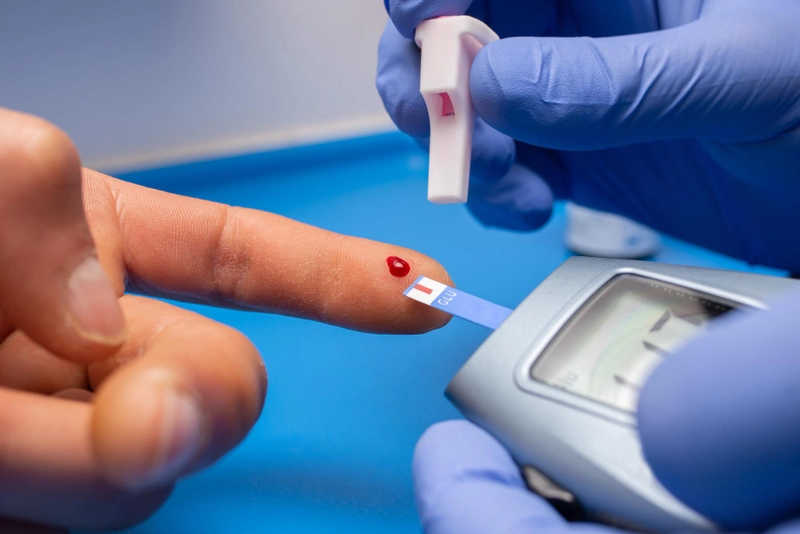- Published on: Aug 17, 2023
- 2 minute read
- By: Secondmedic Expert
Guarding Your Heart, Shielding Your Health: How Prioritizing Heart Health Can Lower Your Risk Of 9 Cancers
In the intricate tapestry of health and well-being, the heart stands as a symbol of vitality and life. It's the organ that keeps our bodies humming along, supplying oxygen and nutrients to every cell. But did you know that by placing a strong emphasis on heart health, you're not only safeguarding your cardiovascular system but also significantly lowering your risk of developing certain cancers? The fascinating interplay between a healthy heart and cancer prevention is a field of research that is changing the way we view wellness. Let's delve into the captivating insights from "Being Heart Healthy Can Decrease Risk Of These 9 Cancers" and unravel how nurturing your heart can serve as your armor against the formidable adversary of cancer.
The Intriguing Connection: Heart Health and Cancer Defense
Traditionally, discussions about heart health have centered around maintaining healthy cholesterol levels, blood pressure, and lifestyle choices. However, recent research is illuminating an unexpected connection between a heart-healthy lifestyle and a decreased risk of developing certain cancers. What began as a journey to prevent cardiovascular diseases is now revealing its implications as a powerful shield against cancer. Understanding this link offers a comprehensive approach to enhancing our overall health and longevity.
Exercise for Heart Health and Beyond
Physical activity has long been celebrated as a cornerstone of heart health. Engaging in regular exercise strengthens the heart muscle, improves circulation, and enhances overall cardiovascular function. However, the benefits extend far beyond the heart itself. Exercise has been shown to influence hormone regulation, immune system function, and cellular processes that play crucial roles in cancer prevention. By making exercise a part of your routine, you're not only caring for your heart's well-being but also bolstering your body's defenses against cancer.
Crafting a Heart-Healthy Lifestyle: A Multi-Faceted Defense
A heart-healthy lifestyle isn't limited to choosing the right foods and staying physically active. It encompasses a spectrum of choices that can significantly lower your risk of both heart disease and certain types of cancer. By adopting a diet rich in antioxidants, fiber, and essential nutrients, you're providing your body with the tools it needs to combat inflammation and potentially deter the growth of cancer cells. In essence, the journey towards heart health is intertwined with the path of cancer resistance.
Stress Reduction: A Dual Benefactor
Stress is a well-known adversary to heart health, but it also plays a pivotal role in cancer prevention. Chronic stress can weaken the immune system and create an environment conducive to the growth of cancer cells. By managing stress through practices like mindfulness, relaxation techniques, and lifestyle adjustments, you're not only promoting a healthier heart but also cultivating an environment that discourages the development of cancer. Stress reduction becomes a dual benefactor, enriching both your heart health and your cancer resilience.
Sleep: The Restorative Pillar of Health
The significance of sleep in maintaining a healthy heart is widely acknowledged. However, its role in cancer prevention is equally noteworthy. During sleep, the body undergoes essential repairs, including DNA restoration and immune system fortification. These mechanisms are pivotal in safeguarding against cancer formation. Adequate sleep thus becomes a crucial ally in your journey towards heart health and cancer protection.
Lifestyle Choices as Shields Against Disease
Embracing a heart-healthy lifestyle encompasses a series of conscious choices that radiate through your entire body. By minimizing alcohol consumption, avoiding tobacco, and steering clear of carcinogens, you're not only fostering heart health but also diminishing your vulnerability to cancer. These daily decisions become your armor, fortifying your defenses against potential diseases and amplifying your overall well-being.
In Conclusion: Fostering Heart Health, Thwarting Cancer Threats
The harmony between heart health and cancer prevention underlines the intricate interconnectedness of our well-being. Prioritizing heart health doesn't solely benefit one organ; it creates a harmonious symphony of vitality that reverberates throughout your body. As you embark on the journey towards heart health, you're simultaneously erecting a shield against cancer, one that has the potential to safeguard you against the risks of not just one, but nine distinct types of cancer. Embrace this path with awareness, knowing that every stride you take towards a healthier heart is a stride towards enhancing your overall health and shielding yourself against unexpected challenges.
Read FAQs
A. Research reveals an intricate connection between heart health and cancer prevention. A heart-healthy lifestyle, encompassing exercise, balanced nutrition, stress reduction, adequate sleep, and healthy habits, can create an environment within the body that is less conducive to cancer cell growth and development.
A. Absolutely. Regular exercise not only strengthens the heart and improves cardiovascular function but also influences hormone regulation, immune response, and cellular processes relevant to cancer prevention. Engaging in physical activity goes beyond cardiovascular benefits, fortifying your body against various cancers as well.
A. Chronic stress can weaken the immune system and promote inflammation, factors that can contribute to the development of cancer. By adopting stress reduction techniques like mindfulness and relaxation, you're not only improving heart health but also creating an environment that discourages the growth of cancer cells, thus serving a dual purpose in maintaining overall health.
Our Services
Request A Callback
Recent Posts
Lipid Profile Test – Normal Range and Risks
Jul 12,2025
How to Prevent Food Poisoning in Monsoon
Jul 10,2025










